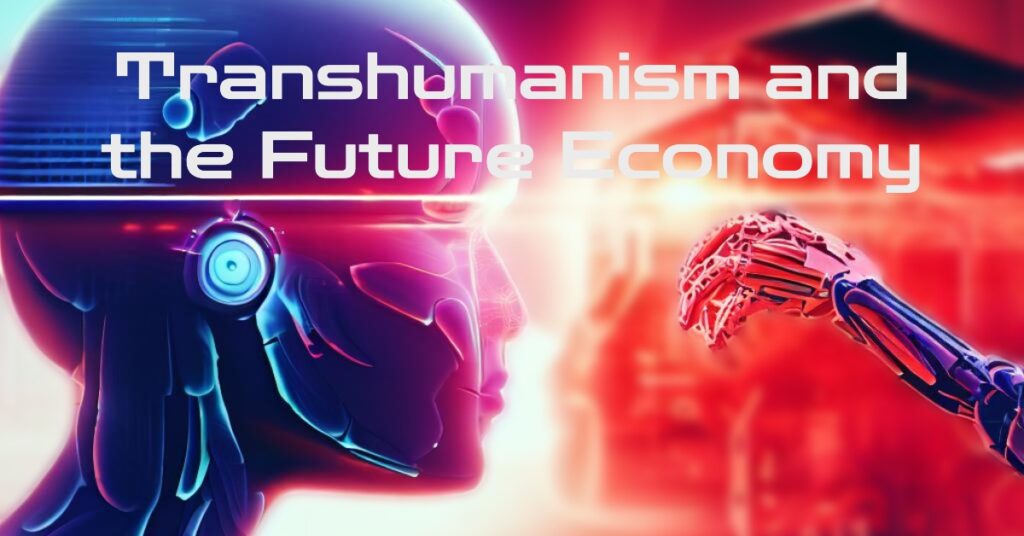The Human Condition: Transcending Limitations
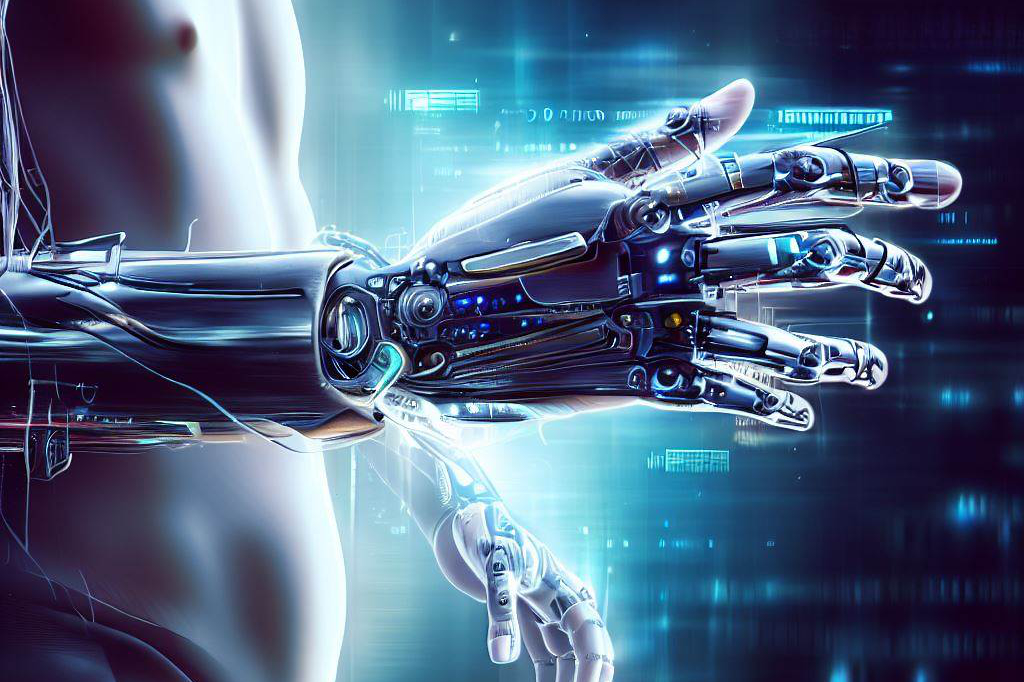
In recent years, there has been a growing interest in the concept of transhumanism. Defined as the belief in using technology to transcend the limitations of the human body and mind, transhumanism offers a view of a future where humanity has achieved unprecedented levels of intelligence, longevity, and physical capability. This vision is attractive to many who see technology as the key to unlocking new possibilities for human advancement.
Transhumanists believe that technology can be used to enhance human capabilities beyond their natural limits. The idea is that humans can use technology to become more than they are currently capable of being.
This could include anything from genetic engineering and cybernetic implants to brain-computer interfaces and advanced prosthetics. Proponents of transhumanism argue that these enhancements will not only improve our quality of life but also help us solve some of society’s most pressing problems.
The Future Economy: Disrupting Traditional Norms

The future economy is expected to be dramatically different from what we are used to today. From automation and artificial intelligence (AI) to decentralized systems such as blockchain, these emerging technologies have already started disrupting traditional economic norms. With this disruption come both opportunities and challenges for businesses, individuals, and governments.
One potential outcome is that advancements in transhumanist technologies could lead to increased productivity levels never before seen; with people working longer hours without feeling exhausted or needing rest breaks, which would translate into higher profits for companies while allowing employees more time for leisure activities or personal development outside work hours. Another possibility is that widespread adoption of these technologies could lead to significant changes in employment rates, with jobs previously done by humans becoming redundant as machines take over routine tasks.
The Intersection of Transhumanism and the Future Economy

As the world hurtles towards a future defined by emerging technologies, it is becoming increasingly clear that transhumanism will play a significant role in shaping our future economy. The advancements in transhumanist technologies have the potential to disrupt traditional economic norms, leading to significant changes in employment rates, productivity levels, and even social mobility.
This article will explore how the intersection of transhumanism and the future economy could shape society as we know it today and provide insights for those curious about this element of our potential economic futures.
The Impact of Transhumanism on the Future Economy
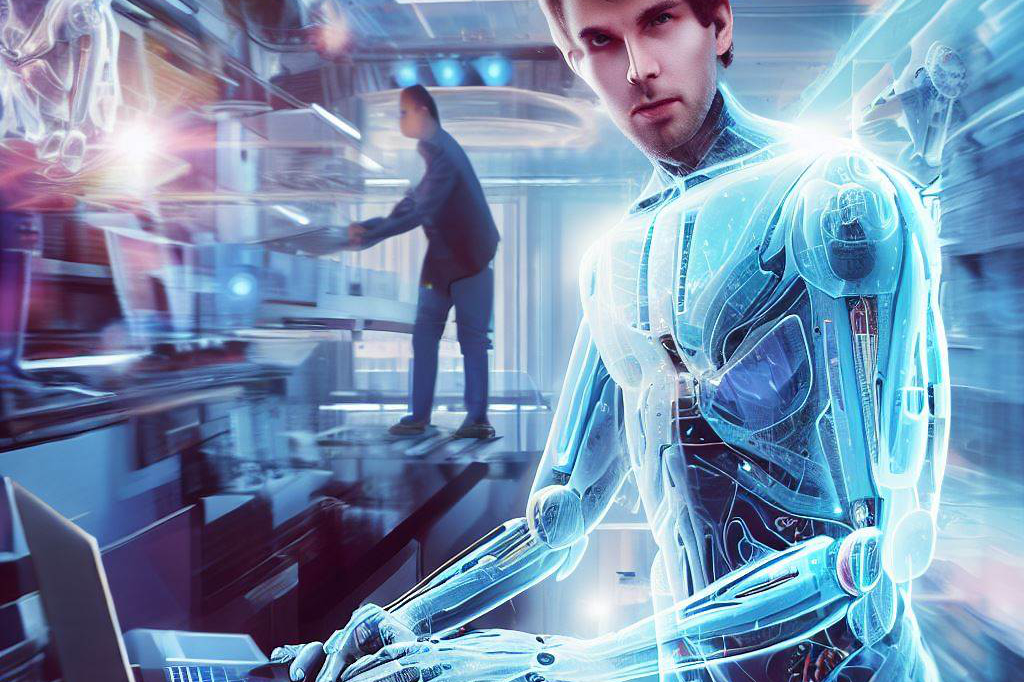
Increased Productivity and Efficiency: The Good Side of Enhancement
One of the most significant impacts that transhumanism is likely to have on the future economy is increased productivity and efficiency. With new advances in technology, people are becoming more capable than ever before.
For example, prosthetics can provide individuals with enhanced strength or dexterity, allowing them to perform tasks more efficiently. Brain-computer interfaces can help people think faster or process information more quickly.
These technologies can help workers become more productive, which could lead to an increase in economic output. Additionally, transhuman enhancements could also allow for better multitasking abilities.
As machines take over routine tasks, workers will need to be able to focus on more complex tasks that require a high level of cognitive function. Enhancements like neurostimulation or memory-enhancement devices could make it easier for workers to stay focused and perform these complex tasks with greater accuracy.
Reduced Labor Costs and Unemployment Rates: Automation vs. Augmentation
Another potential impact of transhumanism on the economy is the reduction in labor costs and unemployment rates. This could happen in two ways: through automation or augmentation.
Automation involves replacing human workers with robots or other forms of automation technology. While this may lead to a decrease in labor costs for businesses, it also means that many jobs will become obsolete as machines become more capable.
Augmentation involves enhancing human workers with technology so they can perform their jobs better and faster. This approach has the potential to reduce unemployment rates while still benefiting businesses by making their workforce more efficient and effective.
Emergence of New Industries and Job Opportunities: The Rise of Transhumanist Fields
Transhumanism is likely to lead to the emergence of new industries and job opportunities that we can’t even imagine today. As humans begin to augment themselves, new fields of study and research will open up. This includes fields like
- genetic engineering,
- brain-computer interfaces,
- and cyborg technology.
These new industries will require a skilled workforce capable of designing, building, and maintaining these technologies. As such, job opportunities in these fields are likely to be plentiful for those with the necessary skills and education.
Transhumanism is poised to have a significant impact on the future economy. While there are certainly risks involved with embracing this technology (such as job displacement or economic inequality), there are also great opportunities for increased productivity and efficiency, reduced unemployment rates through augmentation, and the creation of new jobs in emerging transhumanist industries.
The Role of Artificial Intelligence in Transhumanism and the Future Economy
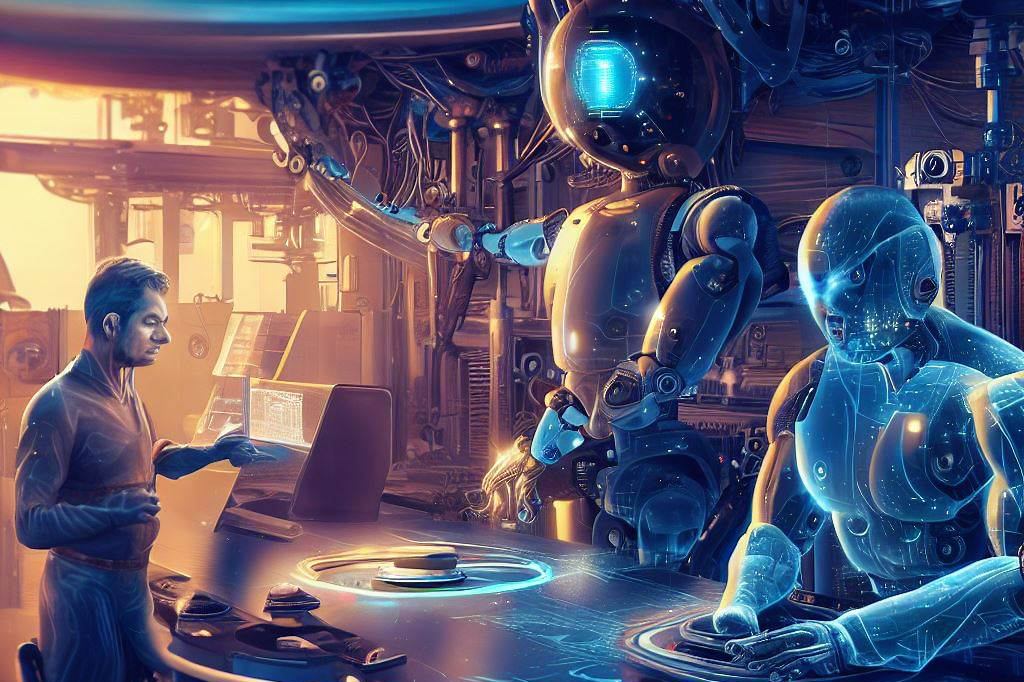
Advancements in AI Technology
Artificial intelligence technology is rapidly advancing, and it is expected to play a significant role in the future economy, particularly within the transhumanist movement. One of the most exciting advancements in AI technology is machine learning, where computer algorithms are able to learn and improve from experience without being explicitly programmed. This technology has incredible potential for enhancing productivity and efficiency across industries.
Another important advancement is natural language processing (NLP), which allows machines to understand human language and respond appropriately. NLP has already been integrated into virtual assistants such as Siri and Alexa, but its potential for automating customer service roles and facilitating communication between machines and humans in various industries cannot be overstated.
Integration of AI into the Workforce
As AI technology continues to advance, its integration into the workforce will become more prevalent. There are already examples of this happening today with automated assembly lines, self-driving cars, and chatbots handling customer service inquiries.
The use of AI can reduce labor costs while also increasing productivity and efficiency. However, there are concerns about how this integration could affect employment rates for humans.
Some experts believe that certain jobs may become entirely automated, while others may require human oversight or intervention alongside machine assistance. Additionally, there may be a need for workers with specialized skills related to maintaining or programming advanced machines.
Potential Risks and Ethical Concerns
While there are many potential benefits to integrating artificial intelligence into the workforce as part of the transhumanism movement, there are also significant risks that must be addressed.
One concern is job displacement – if machines can perform tasks more efficiently than humans with no need for breaks or rest periods, then it can lead to people losing their livelihoods.
Another issue for consideration is privacy – as more and more data is collected by machines that learn from it, the risk of information misuse or cyberattacks increases.
Additionally, there are ethical questions surrounding the use of AI in decision-making processes, particularly if it involves making decisions that affect human lives. It is crucial to ensure that the implementation of AI technology is done with transparency and accountability to minimize these risks.
The Importance of Education and Training in a Transhumanist Society
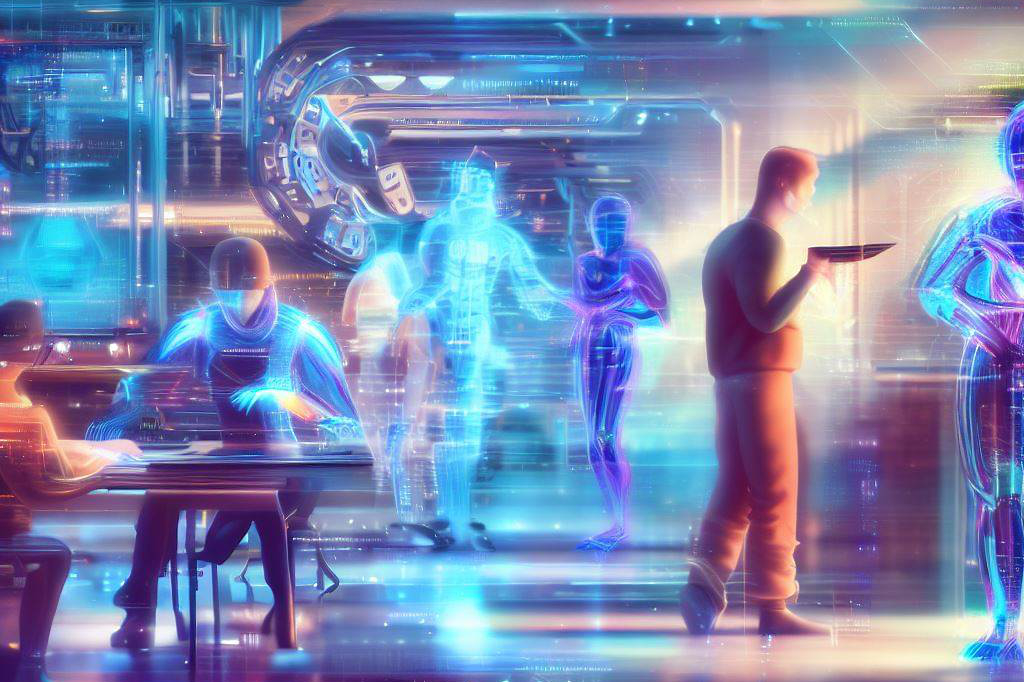
As we move towards a future where technology and biology merge, it is critical to focus on the role of education and training in preparing individuals for this new world. Transhumanism will require continuous learning and adaptation as enhancements become more prevalent. Without access to quality education and training, individuals risk being left behind or unable to fully participate in society.
Need for Continuous Learning and Adaptation
The pace of technological advancement is accelerating rapidly, with new developments emerging every day. In a transhumanist society, individuals will need to stay informed about the latest technologies, advancements in medicine, and changes in industry standards.
They will also need to adapt quickly as their abilities are enhanced or as new enhancements become available. Continuous learning will be essential for success in the workforce, but it will also be necessary for personal growth.
Individuals who can adapt to change quickly will have greater potential for success in life than those who cannot. The ability to learn new skills and adapt to new situations will be highly valued in a transhumanist society.
Development of New Skill Sets
As technology advances, many jobs that exist today may no longer be needed or may require different skill sets. It is important that individuals develop new skills that are relevant to the changing economy. Some examples include coding, artificial intelligence development, biotechnology research, genetic engineering, nanotechnology manufacturing, space exploration management, etc. These fields are likely going to grow significantly after 2040 when many transhumans see their lifespan extended significantly.
Access to quality education and training programs that teach these skills will be critical for those looking to remain competitive in the job market. It’s also important that people understand how different technologies work so they can use them effectively – this includes things like robotics systems or artificial intelligence assistants.
Access to Education for All
Access to quality education must be available to all individuals, regardless of their socio-economic status. Education will be the key to success in a transhumanist society, and it cannot be limited only to those who can afford it.
It is important that governments invest in education and training programs that are accessible to everyone. This could mean offering free online courses or investing in public schools.
Additionally, businesses and non-profit organizations should also play a role in providing education and training opportunities for their employees or members of the community. Transhumanism will require a new approach to education and training.
Individuals will need continuous learning and adaptation as enhancements become more prevalent, new skill sets will become essential for success in the workforce. Access to quality education must also be available to all individuals so that everyone has an equal opportunity for success in this new world.
The Potential for Economic Inequality in a Transhumanist Society

Access to Enhancements Limited by Wealth
One of the major concerns with the spread of transhumanism is the potential for economic inequality in access to enhancements. While some types of enhancements may be widely available, such as simple medical enhancements or cognitive enhancers, more advanced and expensive ones may only be accessible to those that can afford them. This creates a class divide between those that can afford to enhance themselves and those that cannot, further perpetuating economic inequality.
Disparities in Employment Opportunities Based on Enhancement Status
As transhumanism becomes more prevalent, there will likely be disparities in employment opportunities based on enhancement status. Those who have undergone enhancements may have an advantage over those who have not, due to increased productivity or cognitive abilities.
This could lead to a situation where employers prefer candidates who have undergone certain enhancements over others, creating an uneven playing field for job seekers. This could also result in a growing wage gap between enhanced and non-enhanced workers.
Impact on Social Mobility
The impact of transhumanism on social mobility is another area of concern. If only the wealthy can afford advanced enhancements, this will likely limit social mobility and make it more difficult for individuals from lower socio-economic backgrounds to move up. Additionally, if certain types of enhancement become necessary for particular jobs or industries, this could limit opportunities even further.
It is important that policymakers and society as a whole address these issues before they become widespread problems. One solution may be investing in publicly funded research into new advancements that are affordable and accessible to everyone.
Another solution may involve regulating the use of certain types of enhancement in employment practices to ensure fairness and prevent discrimination against non-enhanced individuals. Ultimately, addressing these issues will require careful consideration and planning from all stakeholders involved.
In a Nutshell

Transhumanism is a movement that promotes the use of technology to enhance human capabilities beyond what is currently possible. The future economy will be impacted by transhumanism in various ways, including increased productivity and efficiency, reduced labor costs and unemployment rates, and the emergence of new industries and job opportunities.
This article has explored the role of artificial intelligence in transhumanism and the future economy, as well as the importance of education and training in a transhumanist society. At the same time, there are potential risks associated with transhumanism that policymakers, business leaders, educators, and individuals should be aware of.
Economic inequality could increase if access to enhancements is limited by wealth or if there are disparities in employment opportunities based on enhancement status. Additionally, there are ethical concerns surrounding the use of AI technology that need to be addressed.
Implications for Policy Makers, Business Leaders, Educators, and Individuals
Policymakers have an important role in ensuring that advancements in technology benefit society as a whole. Regulations may need to be implemented to address issues such as economic inequality or the misuse of AI technology.
Business leaders must also consider how their companies can adapt to a changing workforce landscape influenced by transhumanism.They may need to develop new products or services that cater to enhanced humans while also ensuring that traditional workers are not left behind.
Educators will play a crucial role in preparing individuals for a world influenced by transhumanism. New skills will become essential as more jobs require technological proficiency. Accessible education must also be available for all individuals so they can learn about new advancements regardless of their socioeconomic status.
As individuals navigate this changing landscape brought about by transhumanism and its impact on the future economy, they should prioritize continuous learning and adaptation. Remaining informed about advancements can allow individuals to make informed decisions about their own lives and career paths.
Additionally, individuals should advocate for ethical considerations to be addressed in the development of transhumanist technologies.
Overall, transhumanism has the potential to greatly impact the future economy and society as a whole.
While it presents numerous opportunities for advancement, there are also potential risks that must be addressed by policy makers, business leaders, educators, and individuals alike.
By working together and prioritizing ethical considerations, a positive future can be created where technology enhances humanity rather than detracts from it.

C M, a seasoned editor, journalist, and consultant, is deeply fascinated by the convergence of technology, space, and the future of humanity.
With a particular interest in transhumanism, futurology, and the philosophical and ethical dimensions of these domains, C M serves as the lead contributor to TranscendSphere and SpaceSpotlight.
When not penning insightful articles on these rapidly evolving fields, C M indulges in their love for podcasts and books, proudly embracing their status as a ‘Happy Nerd Extraordinaire!’

